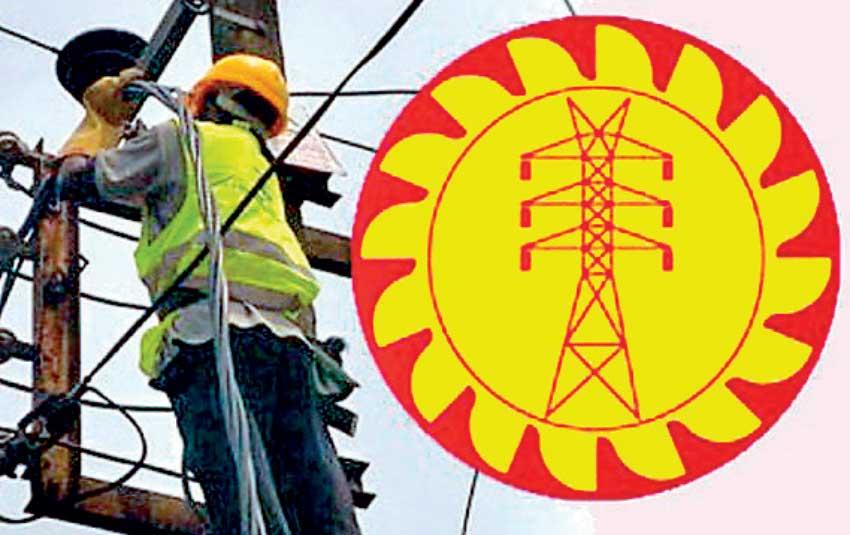30 May 2022 - {{hitsCtrl.values.hits}}

The interim results filed by the Ceylon Electricity Board (CEB) for the March quarter showed the dire straits the country’s power monopoly is in and the imminent need to raise tariffs for it to stay afloat at the minimum.
In its first fiscal quarter ended March 31., 2022, the CEB reported revenues of Rs.79.4 billion, up 11.5 percent from the same period in 2021.
However, the direct costs comprising of generation, procurement, transmission and distribution rose by 43.5 percent Year-on-Year (YoY) to Rs.104.5 billion, making a thumping gross loss of Rs.25.1 billion for the quarter, which rose from the comparable period loss of Rs.1.80 billion in the year earlier period.
This reflected that the State power monopoly makes a massive loss on every unit of power it sold to its customers and thus the business is non-viable.
The dire nature of CEB’s financials calls for urgent upward revision to electricity tariffs to ensure the power utility’s going concern.
The financial results also reinforce the fact that the CEB is facing an acute rupee liquidity shortage.
However, the massive losses at the CEB in the January-March quarter are also due to the heavier reliance on thermal power from both its own plants as well as from Independent Power Producers (IPPs), as typically hydro power generating capacity during this period comes down to a minimum due to the dry weather season.
But the multifold losses compared to the same period in 2021 could be attributable to the rising cost the CEB had to assume when procuring furnace and diesel oil at significantly higher global crude oil prices,
which was exacerbated by the free fall of the rupee from March 7. In the three months to March 2022, CEB accumulated both long and short term loans to the tune of Rs.72.3 billion. Meanwhile the payables, which comprised of the dues to the IPPs rose by 14.4 billion to Rs.244.9 billion.
Last week, the private hydropower generators to the CEB charged that the sector is at the risk of going out of business due to the non-settlement of dues to the tune of Rs. 23 billion. The non-payment of the said dues forthwith, they said, would put at least 7,000 people out of their jobs, adding to the unemployment and the massive power crisis prevalent since the middle of February this year. In this backdrop, the CEB for the January-March 2022 quarter reported a net loss of Rs. 27.2 billion compared to a net loss Rs.6.8 billion in the same period in 2021. This widened the accumulated losses to Rs.197.7 billion.
The CEB in April 2021 sold a Rs.20 billion bond to settle Rs.14.0 billion due to the IPPs and Rs.6.0 billion to the Ceylon Petroleum Corporation for the oil it procured.
Many sections are calling to introduce tough reforms to all State enterprises including power and energy, which include market linked tariffs, shedding excess staff and bringing capable management to turn them profitable or at least break even. Some also call to liberalise the power and energy sector to bust up State utilities which are keeping people hostage through taxpayer-funded money while taking refuge in politically linked unions to hide their inefficiencies and wastage.
24 Nov 2024 3 hours ago
24 Nov 2024 4 hours ago
24 Nov 2024 4 hours ago
23 Nov 2024 23 Nov 2024
23 Nov 2024 23 Nov 2024